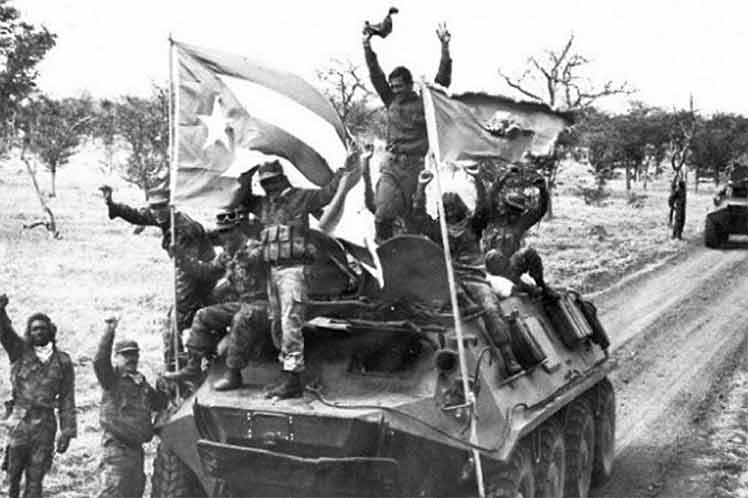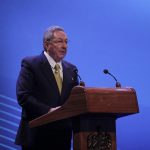Havana: Cuba today commemorates the 45th anniversary of the start of Operation Carlota, which names the internationalist military aid provided by the Island to Angola in the face of threats to its sovereignty, Prensa Latina publishes.
On November 5, 1975, at the request of the Popular Movement for the Liberation of Angola (MPLA), the Cuban government decided to directly support the African nation with the initial dispatch of a battalion of special troops from the Ministry of the Interior.
A year earlier, the military uprising that occurred in Portugal and known as the Carnation Revolution, made it possible for the Lusitanian colonial territories to achieve their independence.
However, by 1975, the former colony was threatened by what was its metropolis, the American Central Intelligence Agency, some countries of the North Atlantic Treaty Organization such as the United States, apartheid South Africa and Zaire (today the Democratic Republic of the Congo).
In order to preserve the independence and territorial integrity, the MPLA leader, António Agostinho Neto, initially requested weapons and instructors from the largest of the Antilles, which would be complemented by Operation Carlota.
On October 23, 1975, South African forces launched an invasion against Angola and advanced rapidly towards Luanda, while Zaire troops and mercenaries arrived 25 kilometers from the Angolan capital.
The first Cuban instructors fell in combat on November 3 of that year and eight days later Neto proclaimed the independence of Angola and became the first president of the new African state.
During Operation Carlota, the battle of Cuito Cuanavale (south of Luanda) occurred, from December 1987 to March 1988, which allowed the country’s independence to be preserved and influenced the liberation of Namibia (in March 1990) and the end of the system of racial segregation in South Africa.
From 1975 to 1991, around 300 thousand Cubans participated in the African epic and more than two thousand lost their lives, whose remains were repatriated during the so-called Operation Tribute.
In the words of the leader of the Cuban Revolution, Fidel Castro, leader of that mission, it was “an extraordinary feat of our people, especially of the youth,” and “rarely has a page of equal altruism and international solidarity been written”.
In the act of farewell to those who fell in that feat, he pointed out that they died fighting against colonialism, racism, looting, exploitation, and in favor of independence, socialism and internationalism.
The operation inherited the name of the slave Carlota, who on November 5, 1843, revolted with a machete in hand at the Triunvirato sugar mill, in the western province of Matanzas, at the time of Spanish colonialism on the island.

Redacción Digital
Equipo de redactores del sitio web de Radio Mayabeque



